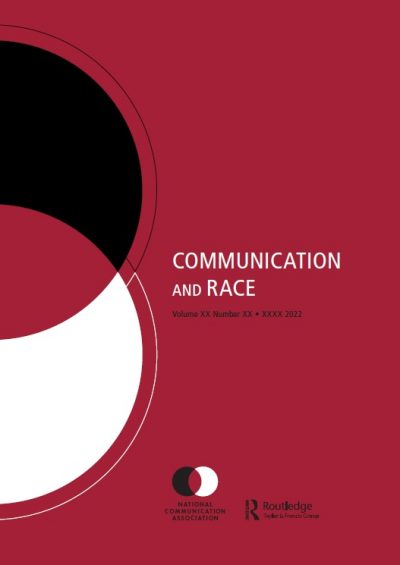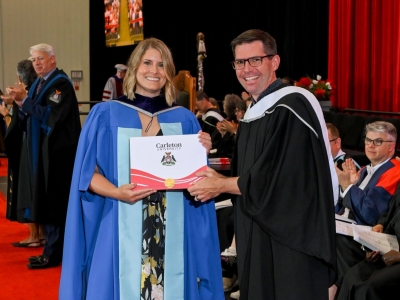For more than four decades, Carleton’s communication program has been a national leader in research and scholarship. Several faculty members have won major book awards, received substantial grants from external funders, and played leadership roles in academic governance as presidents of learned associations and organizations.
Of note, three Carleton communications faculty are recipients of the Gertrude J. Robinson Book Prize, awarded annually by the Canadian Communication Association (CCA) to the best book of the year. The inaugural prize in 2001 went to Professor Karim Karim for Islamic Peril: Media and Global Violence (Black Rose). Professor Michael Dorland was recognized in 2003 for his co-authored book Law, Rhetoric and Irony in the Formation of Canadian Civic Culture (University of Toronto Press), and in 2012 the Robinson Prize was awarded to Becoming Biosubjects: Bodies, Systems, Technologies (University of Toronto Press), co-authored by Professor Sheryl Hamilton.
Dorland, who retired from Carleton in 2018, also served as editor-in-chief of the Canadian Journal of Communication (CJC) from 2012-2018, before he was succeeded by Associate Professor Chris Russill. According to Russill, “the CJC is where the field of communication studies reflects its philosophical, theoretical, methodological, and other differences, and works out what it wants to be in the future by reckoning with pressing societal problems.”
Russill sees the CJC and Carleton’s communication program as sharing a common ethos and philosophy. As he explains, “the journal, like our program, is unapologetic about the importance of scholarship and education to enabling more generous and just ways of living together.” In his current role as editor, Russill says he wants to ensure that both the journal and Carleton’s program “magnify or amplify each other in that respect.”

Further illustrating Carleton’s leadership role in academic publishing, Associate Professor Armond Towns was recently announced as the inaugural editor of Communication and Race, a new peer-reviewed journal for original scholarship on the centrality of race, racism, and colonialism to the praxis of communication. Towns was a driving force in establishing the journal through the Washington-based National Communication Association (NCA), which he envisions as affording a platform for scholars of colour who study race, whether they are in the early, mid, or later stages of their academic careers.
Towns describes his vision for Communication and Race as multifaceted. He wants the journal “to build in-depth, radically contextualized knowledge about the project of the Western race,” so that scholars can begin to theorize a world beyond Euro-American racial constructs.
“We need a space to solidify the capacity for more scholars who seek to study race to get tenure to maintain such thought beyond our current moment, for younger generations who will have to emerge, who will have to build off and even critique our current moment and its conventional arguments, to push us to where we need to be,” he argues. “But to do so, those younger scholars need to get published in what their institutions view as a legitimate field journal.” Towns hopes this will be possible given the journal’s endorsement and support from the NCA.

Like Russill, Towns sees common threads between the mission of the journal and that of Carleton’s communication program. As he explains, “I’m lucky at Carleton to have a great group of scholars and friends who inspire my thinking and, I hope, are inspired by my work as well. I think the journal presents an exciting opportunity to help Carleton and our communications program become better known as a site for critical scholarship on a topic that is increasingly relevant to understanding our contemporary moment.”
Communication and Race will officially begin accepting submissions in the Fall 2022, with the first issue scheduled for publication in early 2024.
Wednesday, July 6, 2022 in Communication News
Share: Twitter, Facebook



